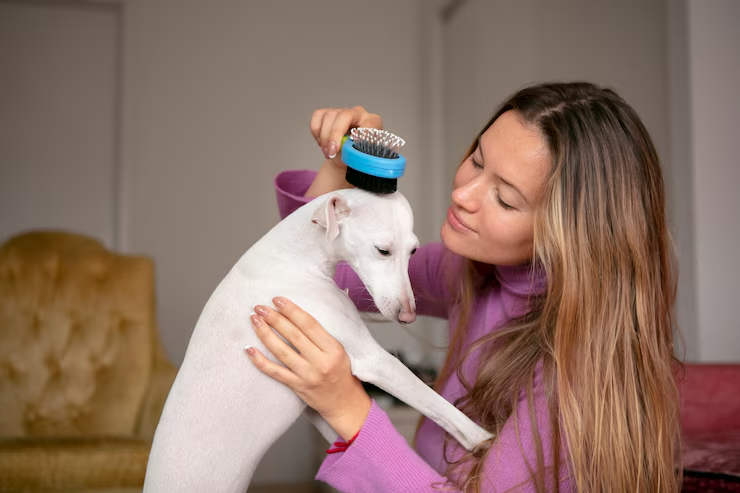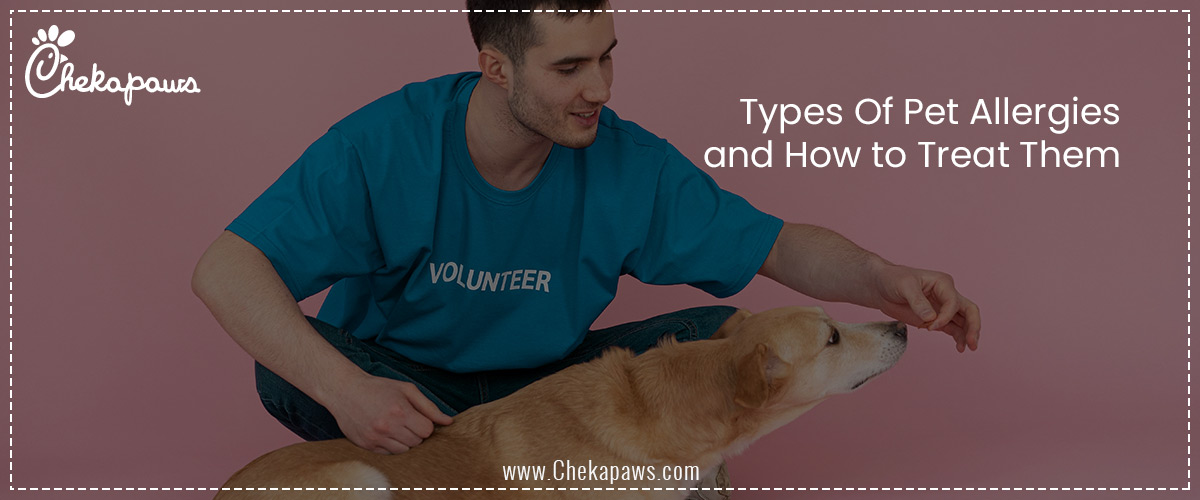For many people, pet allergies can be a major concern, often brought on by a variety of animal-related reasons. Here is the following list for the most common kinds of pet allergies along with some possible treatments.
Table of Contents
Types of Pet Allergies

- Due to an allergic reaction to the saliva of fleas.
- Symptoms: Intense itching, redness, and hair loss, particularly around the tail and hindquarters.
Food Allergies
- May develop from certain proteins or ingredients in pet food.
- Symptoms: Itching, gastrointestinal upset (vomiting, diarrhea), and skin infections.
Environmental Allergies:
- Allergens like pollen, dust mites, mold, or dander can trigger reactions.
- Symptoms: Sneezing, coughing, watery eyes, and skin irritations.
Contact Allergies:
- It is caused by direct contact with substances such as certain fabrics, shampoos, chemicals etc.
- Symptoms: Localized itching, redness, rash.
- Treatment options:
- Avoid being near such things.
- Identify allergens and minimize exposure
- Regularly cleaning your home and pet bedding can help reduce dust and dander.
- Medications:
- Antihistamines: Relieve sneezing and itching.
- Corticosteroids: Reduce inflammation and severe allergic reactions.
- Immunotherapy: This involves using injections or oral drops the pet is gradually treated to particular allergens.
Flea Control:
- To avoid flea infestations, use topicals and oral medicines on a regular basis.
- Diet Changes: To find and get rid of food allergies, consult a veterinarian about hypoallergenic or limited-ingredient diets.
- Skin Care: Medicated shampoos or topical treatments to soothe skin irritation and manage infections.
- Allergen Testing: To find out which allergens are causing your persistent allergies, think about getting tested by a veterinarian or veterinary dermatologist.
- Handling Allergies in Pets
- Frequent pet grooming can help cut down on loose hair and dander.
- To reduce exposure, keep pets out of specific spaces, such as bedrooms.
- To help eliminate allergies from the air, use air purifiers.
- When to Speak with a Vet.
- For an accurate diagnosis and treatment plan, see a veterinarian if your pet exhibits symptoms of allergies or if you believe that exposure to pets exacerbates your own allergies. They can guide you through the best options based on your allergies and your pet’s needs.







